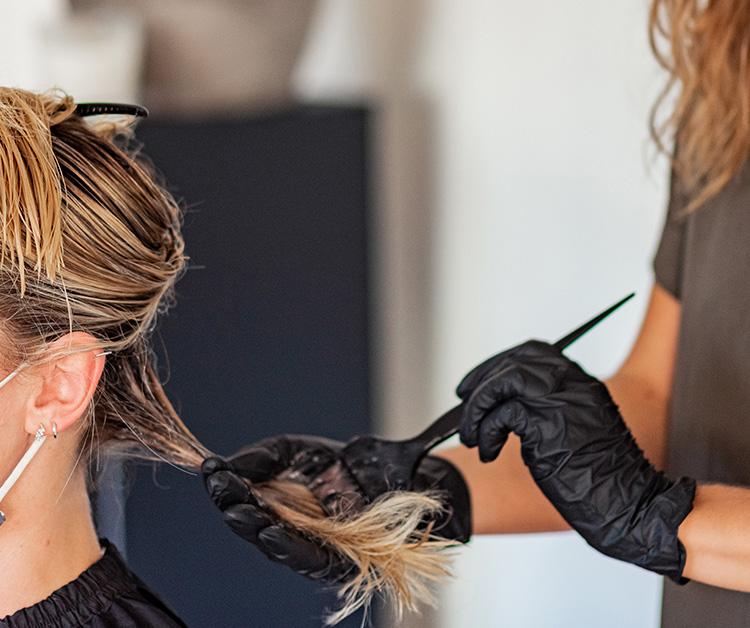Due to maintenance, rewards points for receipt uploads will be delayed. Thank you for your patience!

Nine months is a long time to grow out your roots. Here's what experts say is safe when it comes to coloring your hair while pregnant.
Medically reviewed by a board-certified pediatrician
Being pregnant comes with lots of beauty perks like thicker, glossier hair and glowing skin. As for hair color, pregnancy won't naturally affect that—but it may make you think twice about using hair dye, which uses chemicals to change the color of your strands. Large quantities of chemicals in hair dye may cause harm to the fetus, but that doesn't mean you have to stop coloring your hair while pregnant. If you're wondering, "Is it safe to dye your hair while pregnant?" here's the scoop.
The short answer is yes... with some caveats. According to the American College of Obstetricians and Gynecologists, coloring your hair while pregnant is highly unlikely to be toxic to your fetus1. Animal studies show that even high doses of the chemicals in hair dye do not cause birth defects. Another reassuring finding: your scalp absorbs only small amounts of these chemicals.
Still, you may wish to postpone your next color appointment until you're in the second trimester. That's because so much development is happening during those first 13 weeks: the baby's brain and spinal cord develop, their heart begins to beat, and their overall body structure begins to come together. This period of time is the most important for fetal growth, so many experts recommend minimizing chemical exposure—just to reduce risk. If you're concerned, ask your obstetrician for guidance or wait until you're into the second trimester. (Your roots won't be that bad!)
There are different ways to color your hair, but certain methods minimize contact between dye and your scalp. If you use an all-over color or touch up your roots, this is called a single-process coloring treatment. Usually, single process color involves getting dye on your scalp, which means higher chemical exposure. If you wish to minimize chemical exposure, you may want to consider highlights instead; this way, chemicals are painted directly onto the hair shaft and have little, if any, contact with the scalp.
Though chemical-free hair dye doesn't exist—because even water is technically a chemical—gentler formulas are another way to minimize your chemical exposure. Ammonia-free hair dye can provide beautiful results at home or in the salon, or you could consider a natural vegetable dye such as henna. Note, though, that henna can only add pigment. It cannot lighten hair, so blondes—this isn't the choice for you. These formulas may feel like a safer-for-pregnancy hair dye option.
If you choose to color your hair while you're pregnant, take a few precautions just to be extra safe. If you're doing DIY color at home, be sure to open a window for ventilation; this will help you breathe fresher air instead of inhaling chemical fumes. And you know those gloves that come in the box color kit? Wear them along with a long-sleeved shirt to keep the dye off your skin. At the salon, tell your colorist that you're pregnant and ask to be seated in a well-ventilated area.
Being pregnant doesn't mean you have to stop coloring your hair, but you may want to tweak your routine for peace of mind. And since your hair grows fuller during pregnancy, expect lots of good hair days—whether you color or not.
You know what else might help your hair look amazing? A super healthy pregnancy diet.
All information on Enfamil, including but not limited to information about health, medical conditions, and nutrition, is intended for your general knowledge and is not a substitute for a healthcare professional's medical identification, advice, or management for specific medical conditions. You should seek medical care and consult your doctor or pediatrician for any specific health or nutrition issues. Never disregard professional medical advice or delay seeking medical treatment, care, or help because of information you have read on Enfamil.